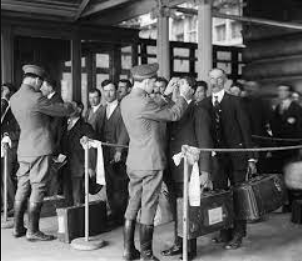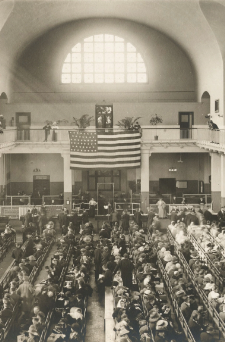|
Ironically, the only times crimes of moral turpitude actually come into play when a person has been charged with a crime is if they are involved in the United States immigration system or if they hold a medical or other type of professional license.

What qualifies as a crime of moral turpitude?
A crime involving moral turpitude (CIMT) is a criminal or offensive act that can be defined as vile and/or insulting to one's moral compass. A crime of moral turpitude is a crime that disrespects and antagonizes societal norms. Typically, crimes involving moral turpitude are done with vicious, evil intent.

https://www.law.cornell.edu/wex/moral_turpitude
A phrase that describes wicked, deviant behavior constituting an immoral, unethical, or unjust departure from ordinary social standards such that it would shock a community.

In legal ethics, an attorney who commits an act of moral turpitude is no longer deemed fit to practice law and may face sanctions. For example, an attorney may be disbarred for committing an act of moral turpitude in California, under Standard 2.11, Title IV of the Rules of Procedure of the State Bar of California. Per Standard 2.15(a), if an attorney is convicted of a felony where either the offense or the facts and circumstances of the offense involved moral turpitude, the attorney is subject to summary disbarment. Standard 2.15(b) stipulates sanctions of either disbarment or actual suspension if an attorney was convicted of a misdemeanor involving moral turpitude.

wikipedia: Moral turpitude
The concept of "moral turpitude" might escape precise definition, but it has been described as an "act of baseness, vileness, or depravity in the private and social duties which a man owes to his fellowmen, or to society in general, contrary to the accepted and customary rule of right and duty between man and man."
from:
https://law.justia.com/cases/california/supreme-court/3d/49/103.html
No. S006888. Supreme Court of California. July 27, 1989.
WILLIAM JORDAN CHADWICK, Petitioner,
v.
THE STATE BAR OF CALIFORNIA, Respondent
It has been described as any crime or misconduct without excuse
or any dishonest or immoral act.
(In re Hallinan (1954)
The meaning and test is the same whether the dishonest or immoral act is a felony, misdemeanor, or no crime at all.
(1 Witkin, Cal. Procedure (3d ed. 1985) S/S 375, p. 425.)

https://www.law.cornell.edu/cfr/text/22/40.21
Code of Federal Regulations Title 22 - Foreign Relations
CHAPTER I - Department of State Subchapter E -
VISAS Part 40 - Regulations pertaining to both nonimmigrants and immigrants under the (INA) Immigration and Nationality Act as amended



40.21 Crimes involving moral turpitude and controlled substance violators.
(a) Crimes involving moral turpitude -
(1) Acts must constitute a crime under criminal law of jurisdiction where they occurred. A Consular Officer may make a finding of ineligibility under INA 212(a)(2)(A)(i)(I) based upon an alien's admission of the commission of acts which constitute the essential elements of a crime involving moral turpitude, only if the acts constitute a crime under the criminal law of the jurisdiction where they occurred. However, a Consular Officer must base a determination that a crime involves moral turpitude upon the moral standards generally prevailing in the United States.
(2) Conviction for crime committed under age 18.
(i) An alien will not be ineligible to receive a visa under INA 212(a)(2)(A)(i)(I) by reason of any offense committed:
(A) Prior to the alien's fifteenth birthday, or
(B) Between the alien's fifteenth and eighteenth birthdays unless such alien was tried and convicted as an adult for a felony involving violence as defined in section 1(1) and section 16 of Title 18 of the United States Code.
(ii) An alien tried and convicted as an adult for a violent felony offense, as so defined, committed after having attained the age of fifteen years, will be subject to the provisions of INA 212(a)(2)(A)(i)(I) regardless of whether at the time of conviction juvenile courts existed within the convicting jurisdiction.
(3) Two or more crimes committed under age 18. An alien convicted of a crime involving moral turpitude or admitting the commission of acts which constitute the essential elements of such a crime and who has committed an additional crime involving moral turpitude shall be ineligible under INA 212(a)(2)(A)(i)(I), even though the crimes were committed while the alien was under the age of 18 years.
(4) Conviction in absentia. A conviction in absentia of a crime involving moral turpitude does not constitute a conviction within the meaning of INA 212(a)(2)(A)(i)(I).
(5) Effect of pardon by appropriate U.S. authorities/foreign states.
An alien shall not be considered ineligible under INA 212(a)(2)(A)(i)(I) by reason of a conviction of a crime involving moral turpitude for which a full and unconditional pardon has been granted by the President of the United States, by the Governor of a State of the United States, by the former High Commissioner for Germany acting pursuant to Executive Order 10062, or by the United States Ambassador to the Federal Republic of Germany acting pursuant to Executive Order 10608. A legislative pardon or a pardon, amnesty, expungement of penal record or any other act of clemency granted by a foreign state shall not serve to remove a ground of ineligibility under INA 212(a)(2)(A)(i)(I).

(6) Political offenses. The term “purely political offense”, as used in INA 212(a)(2)(A)(i)(I), includes offenses that resulted in convictions obviously based on fabricated charges or predicated upon repressive measures against racial, religious, or political minorities.

(7) Waiver of ineligibility - INA 212(h). If an immigrant visa applicant is ineligible under INA 212(a)(2)(A)(i)(I) but is qualified to seek the benefits of INA 212(h), the consular officer shall inform the alien of the procedure for applying to DHS for relief under that provision of law. A visa may not be issued to the alien until the consular officer has received notification from DHS of the approval of the alien's application under INA 212(h).
(b) Controlled substance violators -
(1) Date of conviction not pertinent. An alien shall be ineligible under INA 212(a)(2)(A)(i)(II) irrespective of whether the conviction for a violation of or for conspiracy to violate any law or regulation relating to a controlled substance, as defined in the Controlled Substance Act (21 U.S.C. 802), occurred before, on, or after October 27, 1986.
(2) Waiver of ineligibility - INA 212(h). If an immigrant visa applicant is ineligible under INA 212(a)(2)(A)(i)(II) but is qualified to seek the benefits of INA 212(h), the consular officer shall inform the alien of the procedure for applying to DHS for relief under that provision of law. A visa may not be issued to the alien until the consular officer has received notification from DHS of the approval of the alien's application under INA 212(h).
[56 FR 30422, July 2, 1991, as amended at 64 FR 55418, Oct. 13, 1999]
|
|
